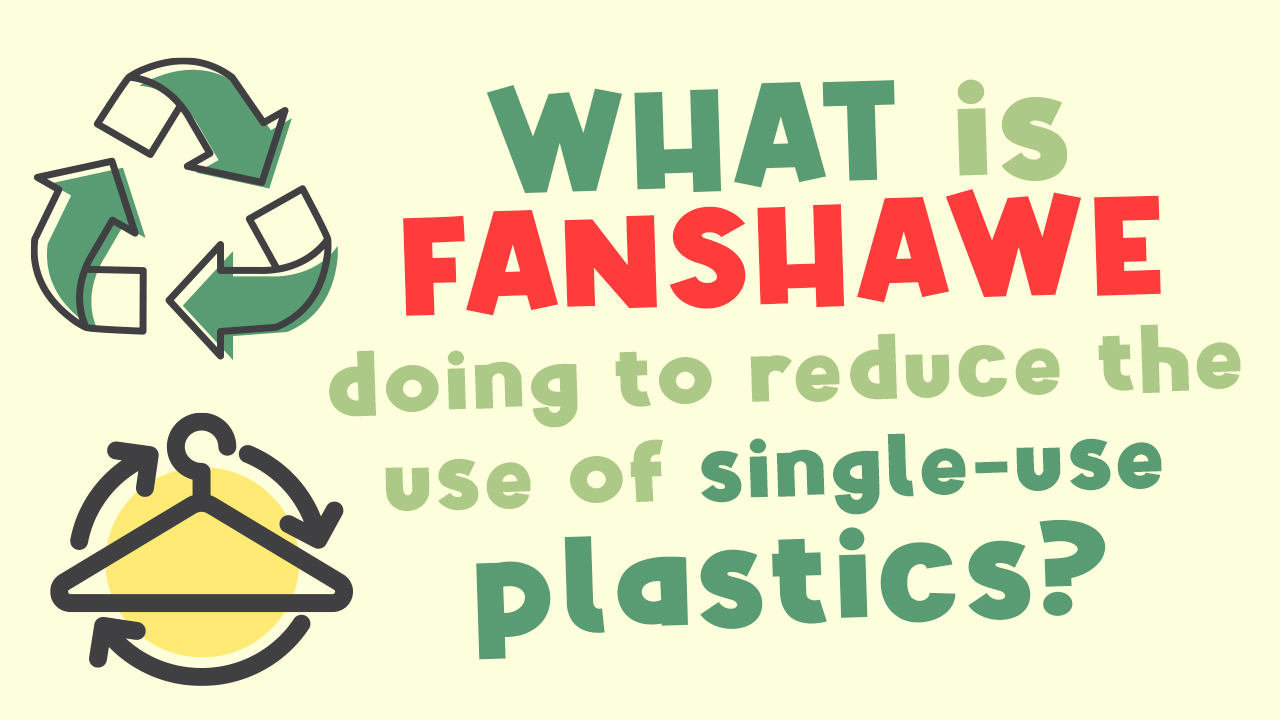What is Fanshawe doing to reduce the use of single-use plastics?
 CREDIT: FSU PUBLICATIONS AND COMMUNICATIONS DEPARTMENT
CREDIT: FSU PUBLICATIONS AND COMMUNICATIONS DEPARTMENTOn June 22, Canada published the “Single-use Plastics Prohibition Regulations” in the Canada Gazette, the official newspaper of the Government of Canada. By now, it’s a fairly big topic. Some people love the eventual ban of single-use plastics, some hate it, and others wonder…is it enough?
The items outlined that will be banned by 2024 include:
- Plastic shopping bags
- Cutlery
- Take-out containers made out of “problematic plastics”
- Ring carriers, typically found on six packs of canned drinks
- Stir sticks
- Straws
With all of this becoming more and more relevant in our everyday lives, what is Fanshawe doing to help prevent the use of single-use plastics?
According to a spokesperson for Fanshawe Student Union (FSU) Hospitality Services, who can’t speak on behalf of the entire college, the FSU began making changes a long time ago.
“Years ago, we removed any traces of foam coffee cups and began to use compostable paper cups,” the spokesperson said. “In 2018, we banned all plastic straws and cutlery and went to paper straws and compostable cutlery.”
Currently, straws are kept behind the counter at all FSU services, except when they’re absolutely necessary to be used, like at Booster Juice. At the Oasis and the Out Back Shack, customers must ask for a straw. When they are unwrapped, they appear to be plastic. But the paper wrapping around the straws say they are made completely out of composted materials.
In 2020, the FSU switched to Kraft paper take-out containers, as well as charging 50 cents for those containers. For those who aren’t interested in paying the convenience fee, they have the standard china plate and silverware available for free, which are then washed and reused. They also added water-refill stations for reusable water bottles and they sell reusable coffee mugs in the Oasis.
Not much was provided as to what the future of this ban will be. The long-term goal for the FSU is to phase single-use plastics out, while providing alternatives so students and faculty aren’t inconvenienced by the change.
“I do see a future where all single‑use plastics will be banned from our campus, and much sooner than some may think. The FSU will continue to advocate for the use of environmentally sustainable products and approaches to our undertakings.”
The spokesperson also said that students play a role in cutting back on single-use plastics.
“Students can easily contribute to this initiative by doing small things like carrying a reusable water bottle, storing lunches into bento boxes instead of Ziploc bags, and most importantly, educating themselves on the negative effects that single-use plastics have on our ecosystem.”
While being environmentally conscious might take a little more advanced planning, there are still many benefits from cutting or reducing the use of these products. Depending on what’s available and convenient, it allows for a bit more healthy eating, rather than eating out while on campus. This also saves some money for other things, whether that be books for school, or something fun to do with your friends.
In the not-so-near future, these items will start to disappear from our everyday lives outside of Fanshawe. As for the school itself, it’s not completely plastic free yet, but they are slowly working towards reducing consumption.

















